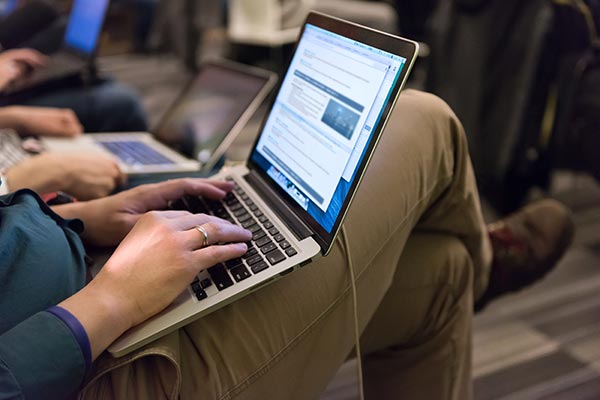
The National Humanities Center has launched the first in a new series of online courses for teachers exploring “Digital Literacy in the Classroom.” In this five-week online course, educators will explore digital literacy through a humanities lens, considering how media has evolved in the digital age, how its messages shape our citizenry, and how this understanding can be effectively conveyed in a classroom setting. The course, which will be offered twice this fall, is sponsored by North Carolina Humanities Council.
Upcoming Courses
The Oyster and the City: Environmental History in Turn of Century America, based on the research and scholarship of Matthew Booker, who currently serves as director of the Science, Technology, and Society Program and is an associate professor in the Department of History at North Carolina State University (NCSU). Professor Booker was a Fellow at the National Humanities Center in 2016–17. Launch date: January 2019
Suckers and Swindlers in American History, framed around the recent publication Fraud: An American History From Barnum to Madoff (2017) by Edward Balleisen, currently the Vice Provost for Interdisciplinary Studies and professor of history and public policy at Duke University. Professor Balleisen was a Fellow at the National Humanities Center in 2008–09. Launch date: January 2019
For more information, contact Karen Carroll Cave, Education Projects Manager.
“Combating misinformation is tremendously important in our digital age,” says Andy Mink, NHC vice president for education programs, “and teachers are increasingly focused on helping their students navigate the barrage of competing voices, determine which sources can be trusted, and develop critical tools for testing the veracity of information they encounter.”
Interest in the Center’s new online courses has been very high, said Mink, and two new courses on topics in economic history and environmental history are currently being developed for the spring with the support of the Teaching with Primary Sources (East Region) program of the Library of Congress. “Also, since both sessions of the digital literacy course filled so quickly, we are planning to offer it again after the first of the year, as well.” Plans are underway to add more courses later in 2019 that will address topics in medieval studies, art history, American Indian history, and Middle Eastern studies.
All of these new online courses build on the Center’s highly regarded suite of professional development resources for teachers which includes webinars, digital lessons, essays, and primary source archives. The online course format provides educators the opportunity to more deeply engage with scholarly content and to use what they’ve learned to develop assignments suited to the needs of their particular students. In addition, the digital platform allows teachers from around the country to consult with one another in dedicated online forums and share their experiences through throughout the course and beyond.
“These courses are designed to encourage teachers to engage with the course material both critically and creatively,” says Mink. “This is very much an interactive process that allows educators to not only learn about the history of media literacy and think about contemporary challenges, but to really develop digital literacy-focused lessons that speak to the media environment their students are wading through on a daily basis.”
“Digital Literacy in the Classroom” is offered free of charge, and includes registration in two of NHC’s fall webinars.
About the National Humanities Center
Contact
Don Solomon
Director of Communications
919.406.0120
The National Humanities Center is the world’s only independent institute dedicated exclusively to advanced study in all areas of the humanities. Through its residential fellowship program, the Center provides scholars with the resources necessary to generate new knowledge and to further understanding of all forms of cultural expression, social interaction, and human thought. Through its education programs, the Center strengthens teaching on the collegiate and pre-collegiate levels. Through public engagement intimately linked to its scholarly and educational programs, the Center promotes understanding of the humanities and advocates for their foundational role in a democratic society.